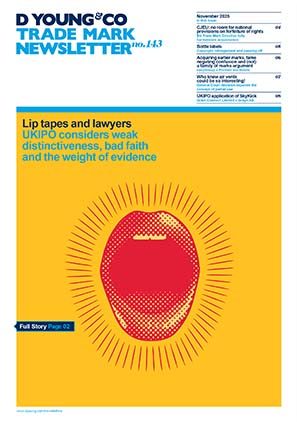Mobile.de v EUIPO: The balance between procedure and justice
The balance to be struck between procedural efficacy and justice is fine. A party needs to present its case in an orderly manner so that the other parties and the court can address it in good time. However, a strict adherence to deadlines can mean that evidence relevant to the issues in the case is disregarded. In mobile.de v EUIPO (Case C-418/16 P), the Court of Justice of the European Union (CJEU) has provided some guidance on this issue.
The balance to be struck between procedural efficacy and justice is fine. A party needs to present its case in an orderly manner so that the other parties and the court can address it in good time. However, a strict adherence to deadlines can mean that evidence relevant to the issues in the case is disregarded. In mobile.de v EUIPO (Case C-418/16 P), the Court of Justice of the European Union has provided some guidance on this issue.
The opposition turned, in part, on the opponent evidencing that its prior mark had been used. It adduced evidence to this effect, albeit some of it out of time. The Cancellation Division held the evidence submitted out of time inadmissible and rejected the opposition. On appeal, the Board of Appeal overturned the decision, allowing all of the evidence. On further appeal, this was supported by the General Court. The trade mark owner, mobile.de, appealed again to the Court of Justice of the European Union, seeking to overturn the admission of the evidence.
Article 76(2) of Regulation No 207/2009 states as follows:
[EUIPO] may disregard facts or evidence which are not submitted in due time by the parties concerned.” However, Rule 22 (2) of the Implementing Regulation states that: “Where the opposing party has to furnish proof of use or show that there are proper reasons for non-use, [the EUIPO] shall invite him to provide the proof required within such period as it shall specify. If the opposing party does not provide such proof before the time limit expires, [the EUIPO] shall reject the opposition.
(See also Regulation 40(6).)
The Court of Justice of the European Union upheld the decisions of the Board of Appeal and General Court. In doing so, it reasoned:
Under Article 76(2) of Regulation No 207/2009, EUIPO may disregard facts or evidence which are not submitted in due time by the parties concerned. In accordance with the settled case-law of the Court ... it follows from the wording of that provision that, as a general rule and unless otherwise specified, the submission of facts and evidence by the parties remains possible after the expiry of the time limits to which such submission is subject under the provisions of Regulation No 207/2009 and EUIPO is in no way prohibited from taking account of facts and evidence which are submitted or produced out of time ... By stating that EUIPO ‘may’, in such a case, decide to disregard such evidence, that provision grants EUIPO broad discretion to decide, while giving reasons for its decision in that regard, whether or not to take such evidence into account.
With regard to rule 22(2) and 40(6), it explained that:
Although it follows from the wording of that rule that, when no proof of use of the mark concerned is produced within the time limit set by EUIPO, the application for a declaration of invalidity must be rejected by EUIPO of its own motion, such a conclusion does not, however, pertain, as the General Court rightly held in paragraph 27 of the judgment under appeal, where some evidence intended to show that use have been produced within that time limit.
This shows a modicum if flexibility to deadlines by the Board of Appeal, General Court and Court of Justice of the European Union.
Case details at a glance
Jurisdiction: European Union
Decision Level: CJEU
Parties: mobile.de GmbH (appellant), EUIPO (Agent, defendant at first instance) and Rezon OOD (intervener at first instance)
Citation: EU:C:2018:128, [2018] EUECJ C-418/16P, ECLI:EU:C:2018:128
Date: 28 February 2018
Link to full decision (bailli): http://dycip.com/mobile
